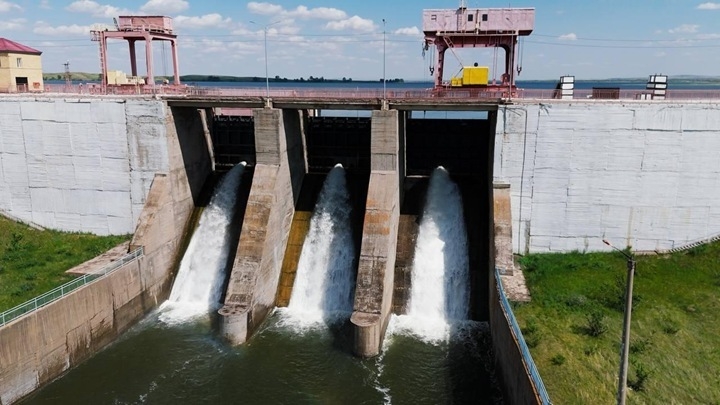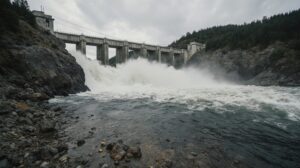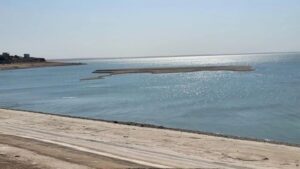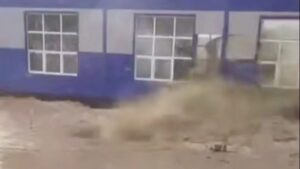A new Water Code developed by the Ministry of Water Resources and Irrigation has come into force in Kazakhstan, the department’s press service reports. The document introduces the concept «water safety» for the first time. This is the protection of citizens and the economy from water shortages and pollution of water bodies, as well as the protection of the country’s interests in the field of protection and use of transboundary waters. To prevent the depletion of water bodies, the concept «ecological flow» – minimum permissible water level is introduced to maintain ecosystems of rivers, lakes and seas.

The new code provides for the development of General and Basin Water Resources Management Plans. These documents will define goals, objectives, approaches and main activities based on forecasts for the availability of water resources. The conclusions and recommendations of these plans will be taken into account in government planning.
Increased public participation in decision-making on water resources management. Basin councils will be able to make recommendations on reducing the permitted volumes of water use, measures to counter floods and droughts, and measures to eliminate violations committed by local executive bodies.
Requirements for the protection of water bodies have been expanded. First of all – small rivers and lakes. In particular, the construction of blind dams on small rivers is prohibited. A special regime for the protection of wetlands and glaciers is provided. And local executive bodies must, within two years, determine water protection zones and strips in all settlements.
A separate chapter is devoted to measures to adapt to climate change. Among them are – cleaning and deepening work on rivers and lakes, determining the boundaries of water bodies at maximum floods, creating engineering systems for protecting populated areas and infrastructure, collecting and storing flood and melt water in reservoirs for use during droughts, using treated wastewater or desalinated seawater in agriculture and other purposes, as well as the use of crop rotation and new water-saving technologies.
The powers of state and local executive bodies in the field of flood and drought control are clearly delineated. Thus, the Ministry of Water Resources and Irrigation, through basin water inspections, monitors the condition and operating hours of hydraulic structures when passing and receiving flood waters. The department also ensures the direction of flood water into reservoirs.
To ensure transparency in the water sector, the Ministry of Water Resources and Irrigation will annually publish on its website a National Information Report on the use of water resources in Kazakhstan. This is an analytical report for the previous calendar year on the state, protection and use of the country’s water fund.
A National Water Information System is already being developed. Today, four modules are successfully operating in pilot mode: «Administration», «Water use», «Transboundary waters» and «Cartography».
New mechanisms for stimulating water saving are coming into force. For example, a water use permit will only be issued if there is a plan to gradually switch to recycled or recycled water supply. Five years are given for the transition. To develop plans – two years from the date of introduction of the Water Code.
The issues of reducing unproductive water losses in agriculture are considered. The procedure for creating an irrigation condominium is regulated, and in its absence, local executive bodies are vested with the authority to externally manage such property.
In addition, water users can now independently and without special permission accumulate melt water for agricultural needs. To do this, you need to build a pond, tank or other container, the volume of which should not exceed 2 million cubic meters, and notify the basin water inspectorate about this in order to include the facility in the register of hydraulic structures.
Another feature of the new Water Code was the introduction of the issue of safety of hydraulic structures into a separate chapter.
It systematizes the issues of creating and maintaining a register of hydraulic structures, their operation, as well as conducting multifactor surveys with the development of safety declarations. It is also planned to develop safety regulations for hydraulic structures.
The document also includes standards for the development of water supply and sanitation systems, regulation of storm and drainage flows, and transfer of ownerless systems into municipal ownership.
Functions have been transferred to the Ministry in terms of regulating the search, assessment, monitoring and protection of groundwater. Within the Ministry of Water Resources and Irrigation, the National Hydrogeological Service «Kazhydrogeology» deals with these issues.
To effectively combat the «black market» of water, the functions of state control of basin water inspections have been strengthened. They are now endowed with oversight functions, according to which they will take prompt response measures. State control will also be exercised over compliance by local executive bodies with the functions assigned to them in the field of protection and use of the water fund.
Amendments have also been made to the Civil, Land, Entrepreneurial, Forest and Environmental Codes, as well as to 13 laws. The Land Code has been amended to regulate the use of water bodies in populated areas. The Environmental Code has been supplemented with standards regulating the requirements for carrying out activities in water protection zones.
Amendments have also been made to the Code of Administrative Offenses and the Code of Subsoil and Subsoil Use, initiated by deputies. In particular, the Administrative Code provides for tougher liability for violations in the water sector, and the Code on Subsoil and Subsoil Use has changed the articles on exploration and production of hydrocarbons in the Caspian Sea, exploration and production of groundwater, as well as exploration, extraction of salt and medicinal mud.
«In drafting the new Water Code, we were guided by five basic principles. This is the recognition of water as an integral part of the environment, the basis of citizens’ livelihoods and economic development, the protection of water and the prevention of its depletion, the integrated use of surface and groundwater, the introduction of water-saving technologies and adaptation to climate change, involving the public in solving problems of protecting and using the water fund. The document will help formulate a new state policy in the field of water resources. I especially thank the deputies of Parliament and the experts who participated in its development», – noted the Minister of Water Resources and Irrigation Nurzhan Nurzhigitov.




